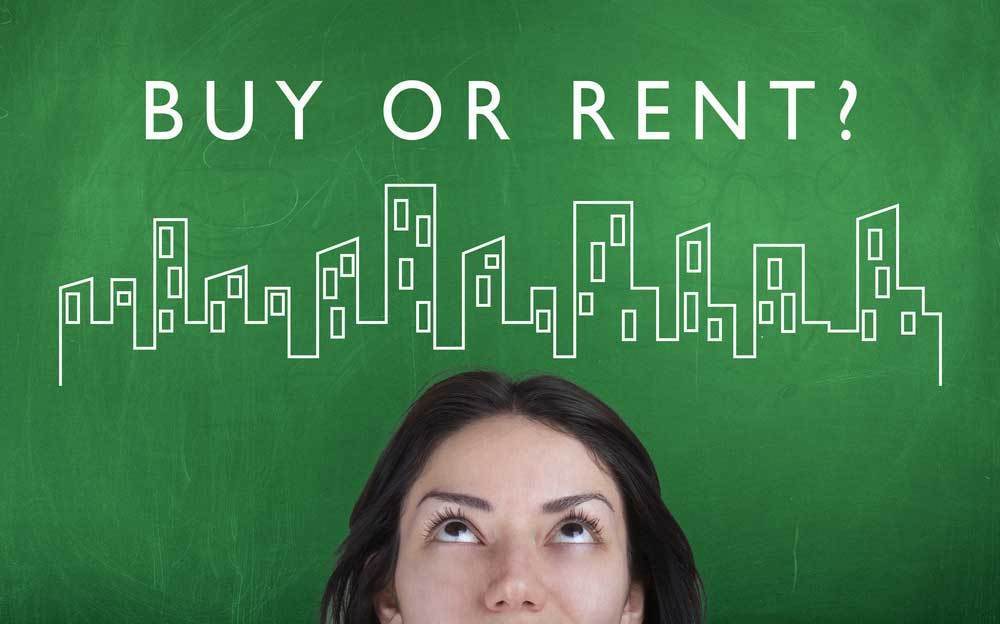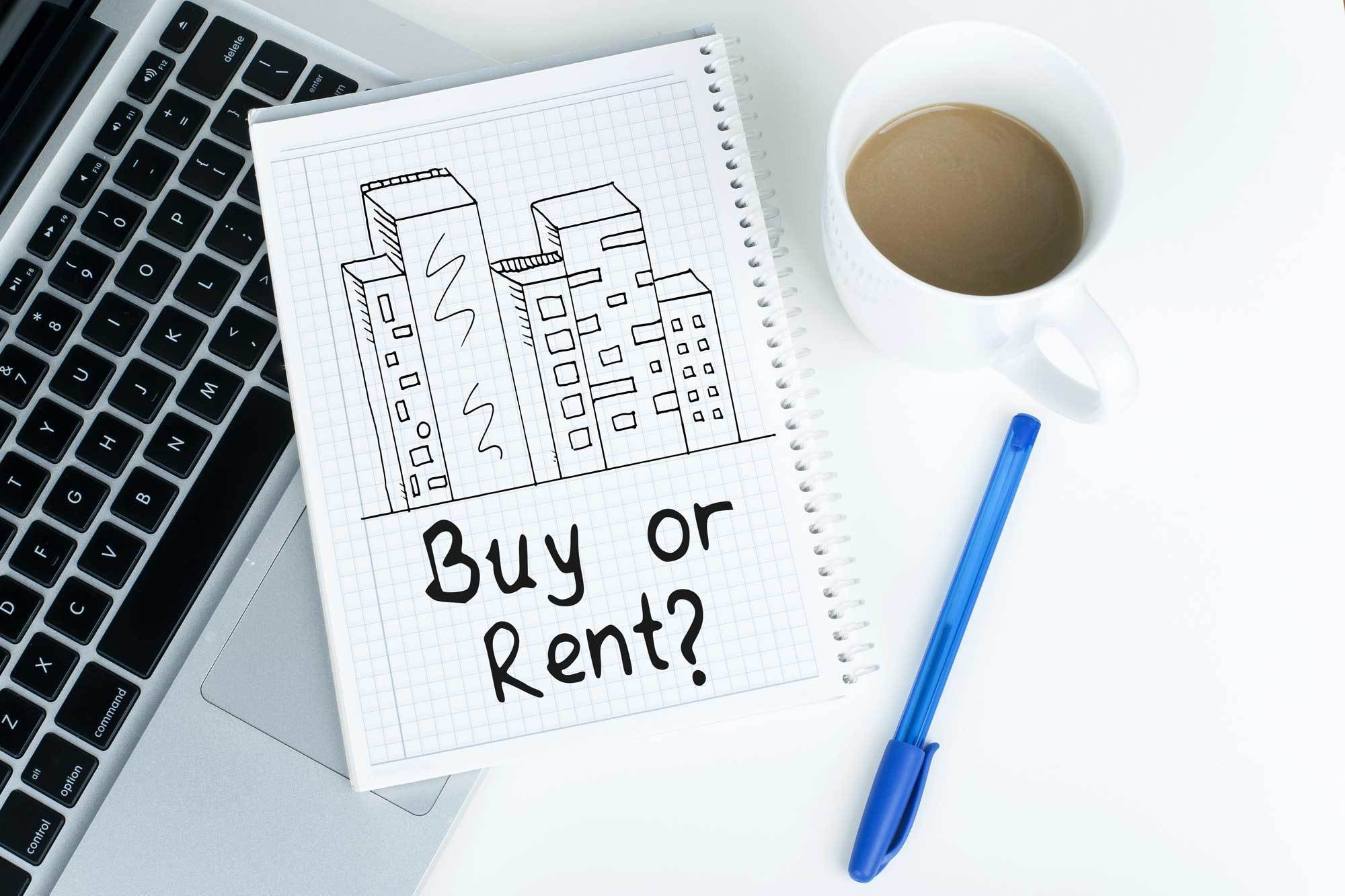Choosing whether to rent or own a home is not an easy decision. It requires you to carefully examine the factors and costs associated with each option. Which is better? That depends.
Your unique economic situation, lifestyle and goals play the largest part in deciding what is better for you. It’s important to go into your calculations with open eyes. As much as you want a home, you may not be able to afford it. Or it may not be the right decision for the way you like to live.
Factors To Consider When Buying/Renting a Home

The following four points are the largest factors to consider when weighing the pros and cons of home ownership vs. rental.
1) What are the total costs?
Many people look at the economics of home-ownership as a mortgage payment only. In reality there are insurance, repairs, property tax, homeowners association dues etc. that all have to be factored in to your monthly costs. Check out this calculator from the New York Times to see more.
Use a calculator and compare to see if:
- The monthly cost as a homeowner is less than renting.
- You can afford the monthly cost (if it works out more than renting in your area)
- Saving a 10-20% down-payment is feasible for you.
If owning a home definitely the way to go for you, you need to be able to answer the above questions definitively.
2) What is important to you?
Are you more interested in building for the future, or reducing your financial risk until you can figure out a plan? You may want to own if you are thinking about starting a family. But as someone who is single, you may enjoy your freedom and having less financial debt. (Even if it is building your net worth in the long run)
Undoubtedly, buying a house only makes sense if you plan to set up roots. If you plan to move within (or every) 5 years, your transaction costs will likely bring the equity you build in your house to zero. Thus diminishing your upside while carrying all of the liabilities that come along with home ownership. Owning a home is a smart decision if you plan to stay for 10 years or more.
3) What is your preferred lifestyle?
Do you want to build a career in a specific city or travel around? Do you have long-term goals in mind? It’s okay if you don’t. The most important part is being aware of where you are at. You may want to get some international work experience or try your luck in another part of the country. Or not.
Really think about what you want. You could lose some serious money if you buy a house and sell within a few years because you decide it isn’t for you.
4) What are the opportunity costs?
Think about the pros and cons of home-ownership. On one hand, you will always have a home base. On the other, you have a property that ties you down to a geographical location. Can you make more money in another city? With a home, you can’t move to pursue those opportunities.
If rent is equal to monthly payments as an owner, think about the opportunity costs of having all of your money tied up in the house. For example, some investors may rent and opt to invest their money in the stock-market or other investments in their portfolio. Can you make higher percentage returns yearly with the money you would be using for a down payment?
Rent vs Buying

The above were things you will want to consider. If you need to be realistic to make the right decision about renting vs owning a home. The below two situations may help if you aren’t able to come to a conclusion.
When is Renting a Home Better?
Despite popular belief, owning a home is not always the best decision. Let’s not be black and white. It depends on your particular situation.
You may want to rent if:
- You want to travel and set-up shop in different places every few years.
- You do not have the job or financial security to (realistically) guarantee payments for years to come.
- You have demonstrated the ability to make better financial returns through other investments.
There are other factors. However, this is a good starting point to help you determine your argument for renting versus owning a home. The benefit of renting is not being tied down to a geographic location and being able to leave when your lease runs up.
When is Owning a Home Better?
Owning a home is the long-term game. You need to have your goals in mind and understand if you can afford it.
You may want own if:
- You are okay with staying in one place for 10 years or more.
- You have the financial stability to afford the home (and float payments if you lose your job)
- You want to leverage your home as an investment property down the line (through rental)
Owning a home gives you an anchor. It helps you stay grounded by having a home base. At the same time, you can increase your upward potential by leveraging the home as an investment property.
Check out our latest show!
In Conclusion
Choosing to rent or own your home is a big decision. It depends on your individual situation and vision for the future. In short, owning is traditionally the better long-term strategy. However, that’s not to say that you can’t do as good or better with the right investment portfolio.
Before jumping into anything, analyze yourself. Think hard about where you are and what you want for the future. Speak to a realtor and see if they have any advice for your individual situation.
If you are looking at purchasing property in the area, give me a call. I’d love to discuss your options and see if buying is the right path for you.
Be sure to like/subscribe https://www.youtube.com/channel/UC1c4z7IVs5rIs0QxWXCibAw?sub_confirmation=1
Click here for links to our Radio Show!
Check your home’s value by visiting our free home valuation tool here: What’s my home worth
Hometown Realty is a Proud Sponsor of the Tennessee Volunteers:
As Tennessee’s Realtor®, we are proud to partner with the University of Tennessee’s athletic program each year. Our partnership with UT Athletics is a powerful way for us to align our brand with the community pride and passion that surrounds this beloved institution. By supporting UT athletics, we demonstrate our commitment to not only providing exceptional real estate services but also investing in the success and growth of the community we serve. Overall, our partnership with the University of Tennessee’s athletic program allows us to give back to the community we are proud to call home.
Did you know we are giving away free tours of the Tennessee Athletics Departments at UT? If you are one of our great clients give us a call to set up an exclusive VIP tour! For more information visit the VIP TOUR page! This is completely free, we want to give back to our awesome clients & potential clients!




